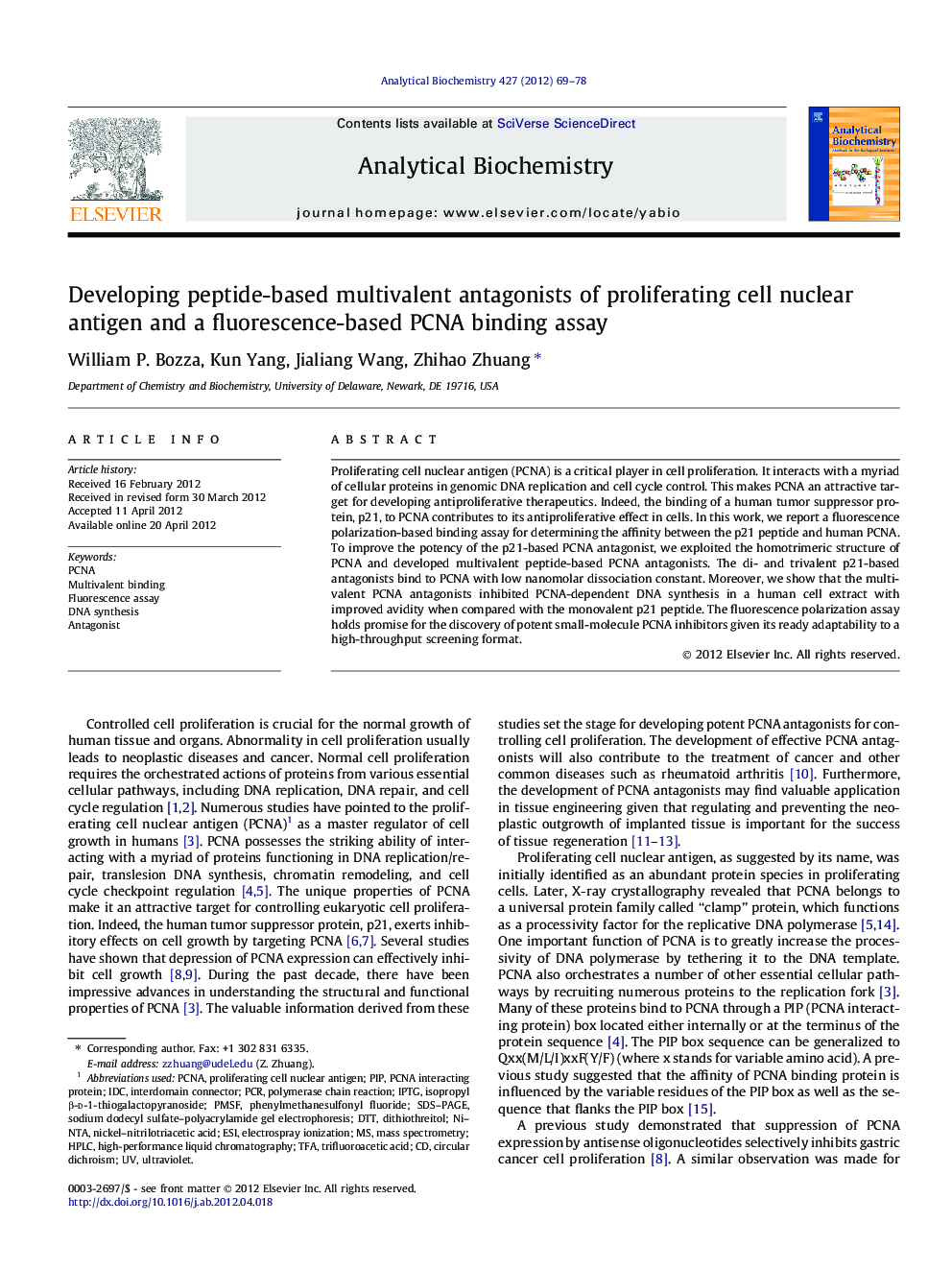| Article ID | Journal | Published Year | Pages | File Type |
|---|---|---|---|---|
| 10532788 | Analytical Biochemistry | 2012 | 10 Pages |
Abstract
Proliferating cell nuclear antigen (PCNA) is a critical player in cell proliferation. It interacts with a myriad of cellular proteins in genomic DNA replication and cell cycle control. This makes PCNA an attractive target for developing antiproliferative therapeutics. Indeed, the binding of a human tumor suppressor protein, p21, to PCNA contributes to its antiproliferative effect in cells. In this work, we report a fluorescence polarization-based binding assay for determining the affinity between the p21 peptide and human PCNA. To improve the potency of the p21-based PCNA antagonist, we exploited the homotrimeric structure of PCNA and developed multivalent peptide-based PCNA antagonists. The di- and trivalent p21-based antagonists bind to PCNA with low nanomolar dissociation constant. Moreover, we show that the multivalent PCNA antagonists inhibited PCNA-dependent DNA synthesis in a human cell extract with improved avidity when compared with the monovalent p21 peptide. The fluorescence polarization assay holds promise for the discovery of potent small-molecule PCNA inhibitors given its ready adaptability to a high-throughput screening format.
Related Topics
Physical Sciences and Engineering
Chemistry
Analytical Chemistry
Authors
William P. Bozza, Kun Yang, Jialiang Wang, Zhihao Zhuang,
